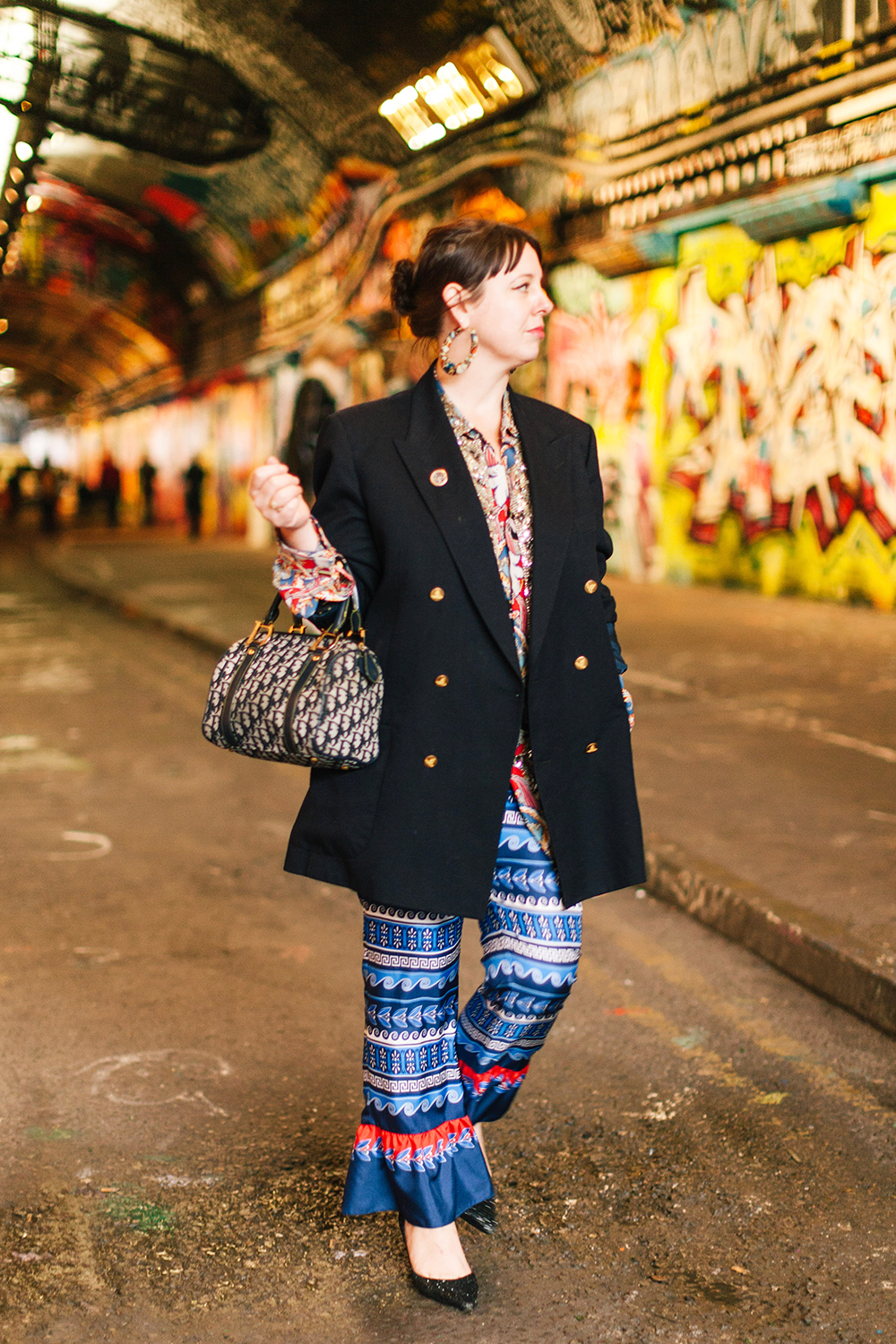The Green Room with Livia Firth: 'COVID-19 has made us think about the implications of fast fashion'
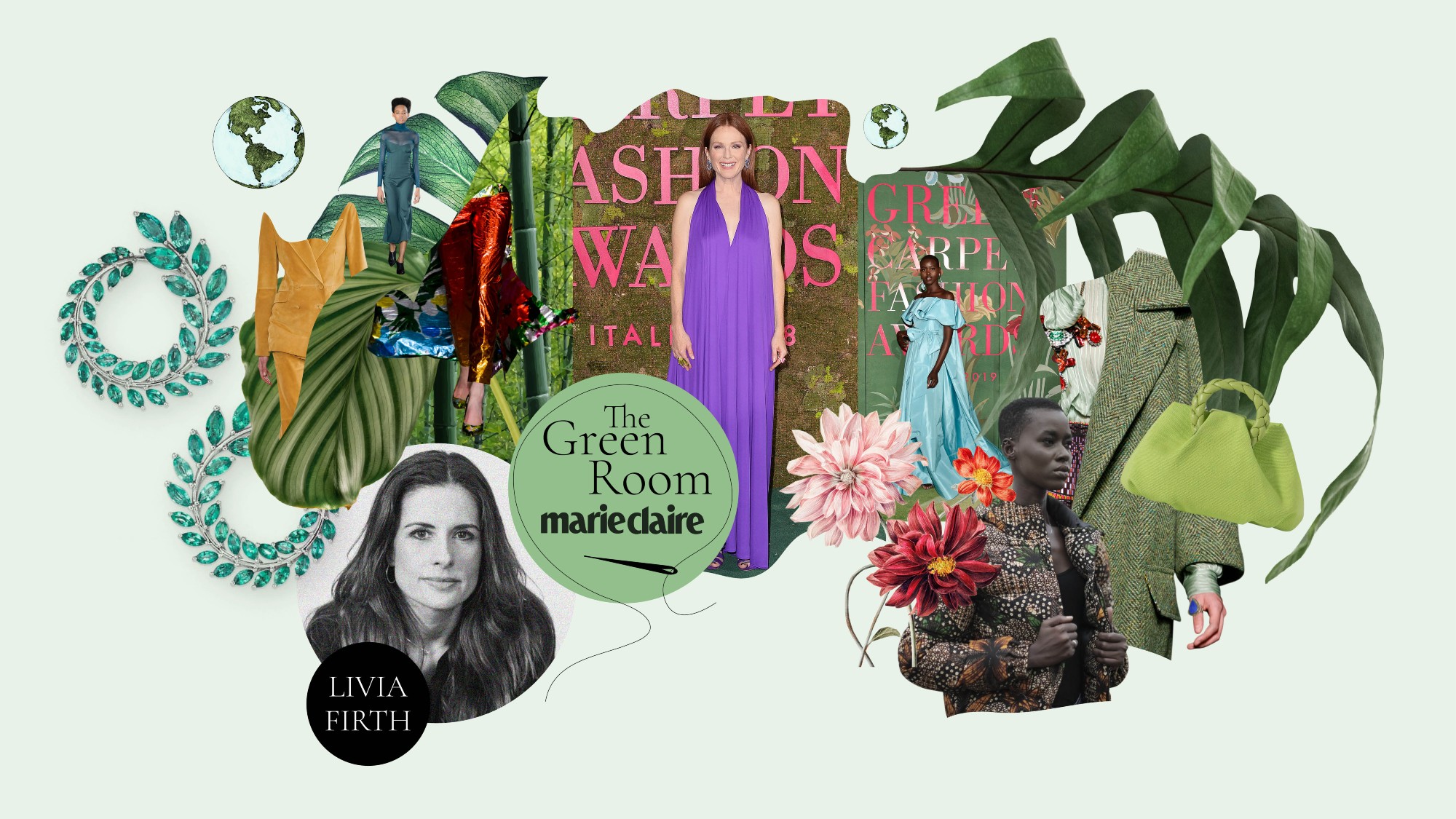
Welcome to The Green Room – Marie Claire's new series speaking to the inspiring industry figures working towards a more sustainable future. First up is Livia Firth: acclaimed sustainability consultant, celebrated founder of Eco-Age and all-round fashion industry change-maker.
To kick off our new series on movers and shakers in the sustainable world, who better than Livia Firth? She’s one of the original voices to shine a light on the issues surrounding fashion – both environmental and social – as the founder of Eco-Age.
What started in 2008 as a lifestyle store blossomed into a sustainability consultancy that now advises some of the industry’s biggest brands, from Chopard to Gucci, on responsible business practices. She decided to walk the talk in the most personal way when husband Colin Firth was nominated for an Oscar for A Single Man in 2010.
Her original ‘Green Carpet Challenge’ followed her across the red carpets of awards season, wearing only sustainably-designed gowns at each glossy event. Now it’s an initiative that’s seen everyone from Olivia Colman to Thandie Newton and Gisele Bundchen taking up the challenge. There’s also the annual Green Carpet Fashion Awards, which celebrates pioneers across the industry. 2020’s Awards took place in innovative virtual form. (You can watch them on YouTube here.)
A documentary film producer by trade, she’s spent the last decade making Fashionscapes, with fellow producer Andrew Morgan (the man behind 2015’s The True Cost, which investigated the impact of fast fashion). The series (available to view on the Eco-Age website) sees Firth travel to countries like Botswana and Tasmania to meet the people involved in fashion’s supply chain.
Here are Firth’s thoughts on her green fashion journey…
Livia Firth: 'The past year has taught us we don't need that cycle of consumption'
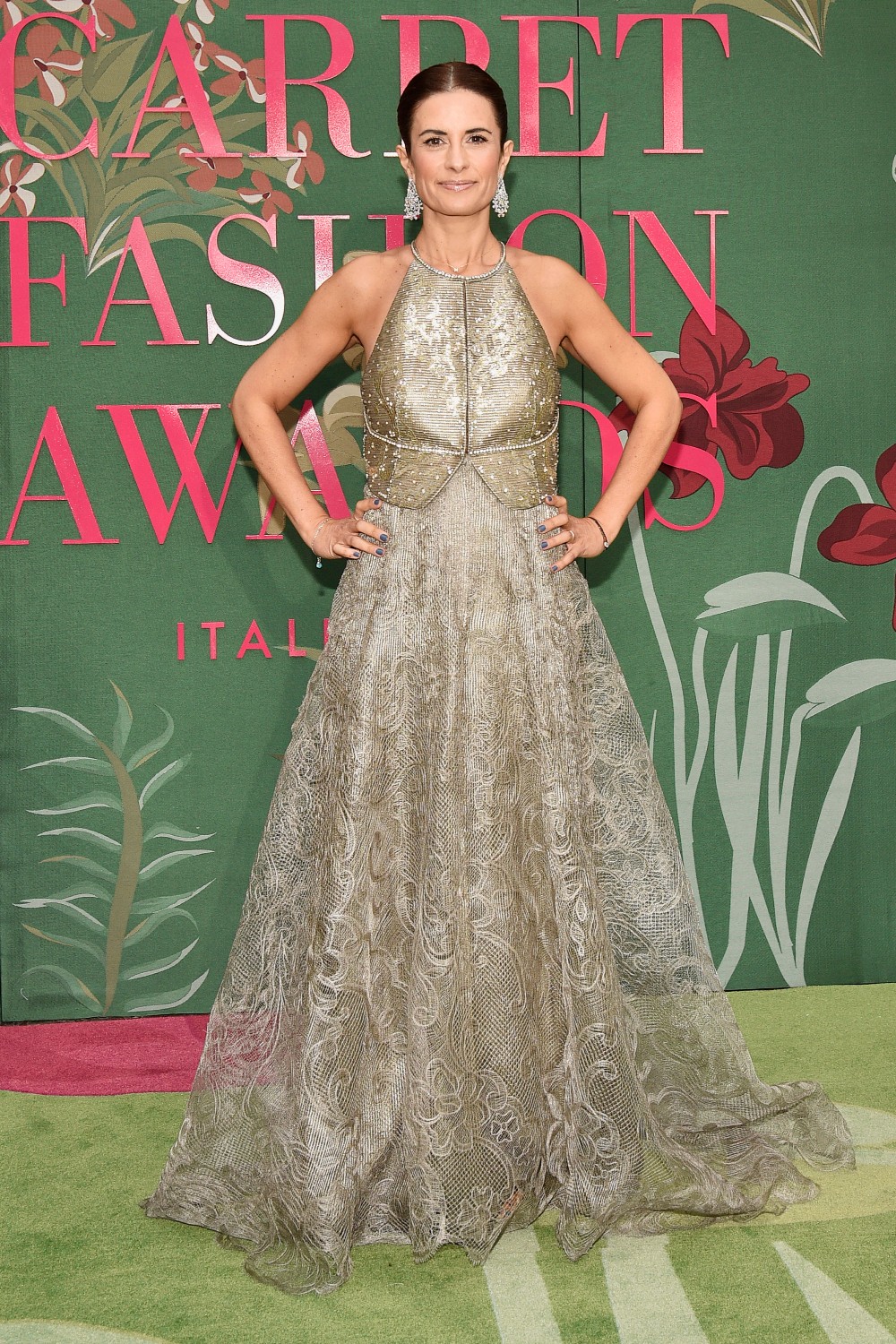
How did you first become aware of the need for change in the fashion industry?
Marie Claire Newsletter
Celebrity news, beauty, fashion advice, and fascinating features, delivered straight to your inbox!
What changed me was a trip to Bangladesh in 2008 when I got smuggled into a factory. That’s the moment I saw and understood that fashion had a huge social impact and that a massive sector of fashion – fast fashion – was based on slave labour and exploitation of people on the other side of the world. We didn’t know or care as we were so divorced from the producers of our clothes. I remember thinking, as a woman I can’t do this to other women just because they’re on the other side of the world.
Where do you feel we’re at now, after recent events?
This year, so much has happened in our lives – being in lockdown and changing the way we dress, we don’t even have to go out anymore. We spend the majority of our days in sweatpants! I think it’s helped us realise we don’t need that fast cycle of consumption we were addicted to before. It’s also educated us – for the first time in history, we had a problem that touches every single one of us – wherever you are, people are getting sick and dying of COVID.
It’s helped us all reconnect to our global roles as citizens. And so much has come to the surface about garment workers that haven’t been paid and orders cancelled because of COVID. In countries where labour is not protected, like Bangladesh, Cambodia, Myanmar, Sri Lanka – these people had no protection. And all these images are out there on social media. So it’s made us think more about the implications of fast fashion.
Do you think there’s a place for cheap mass clothing that’s also ethical?
No, it doesn’t exist. For a middle-aged woman like me, it’s an easier notion to understand. I’m 51 and when I was growing up, we simply couldn’t buy cheap fashion. We used to buy in a completely different way – looking at quality and sustainability in a different sense. The only way to make it possible to buy something so cheaply is due to exploiting labour and squeezing the margins. When you meet these garment workers producing 150-200 pieces an hour working 12 hours a day and they still earn poverty wages – how is that sustainable?
I recognise those blue earrings you’re wearing – which are your own favourite pieces that have exceeded the #30wears rule?
I’ve had these since I was 16 or 17. I can’t even remember where I got them! It was the 80s, the Madonna period with the big hoops. One of my favourite dresses is made from two different ones – a dress I had for my 18th birthday, a really cute LBD. But it was short and as I got older I didn’t want to show that much leg. So I cut the top, and used the skirt of another dress. I do things like that all the time.
If you look at my wardrobe as a treasure trove – I’m now 50 and I’ve got clothes from my mum, and that date back to when I was a teenager. It’s about how you look after them, too. When I first moved to England, people used to tease me about doing the ‘wardrobe change’: in Italy, when summer arrives, you take all your winter clothes, handwash them, put them in little plastic bags and store them over the summer. You tend to your clothes as if they’re jewels. So they last longer.
When you do shop, who do you love?
In the last few years, I tend to prefer brands that are very small and work with artisans like Carolina K. They produce clothes that are unique and are produced with love. Not mass market. A dress will take a long time to make. I love the story of a dress. I don’t tend to buy a lot of things, I have so many clothes I don’t have a life to wear them all!
If I buy something new, I keep changing the target, and now I’ll be like, will I still wear it when I’m 60? 65?
What’s the idea behind the Fashionscapes film series?
Through the last 10 years I’ve travelled across so many different supply chains and I suddenly thought it’s a shame not to document some of these trips and share the message because there is nothing better than visuals. When you see a movie or you go onto the ground, it changes everything. I worked with Andrew Morgan because he produced this fantastic documentary The True Cost, which really changed the conversation around fast fashion. We developed this series called Fashionscapes together – we went to Tasmania to look at the impact of wool and meet the wool growers.
Last year I went to Botswana to look at the diamond supply chain. It was an eye-opening trip and it’s important because when you meet the people on the ground you start to understand, what keeps them awake at night, what are they proud of, what their issues are. It was about me going around and listening to these voices.
What tools do you recommend to educate ourselves?
We announced yesterday a strategic partnership with the app Good On You. You can go on it and see how each brand is rated. It’s very accessible and easy. With Lucy, a few years ago we established a simple rule that became a hashtag – #30wears.
None of us walks around with an encyclopaedia about which brand is good or bad. But when you’re about to buy something, ask yourself, ‘will I wear something a minimum of 30 times’? And that’s the minimum. You’d be surprised how often the answer is no.
On Instagram, follow the Clean Clothes Campaign (@cleanclothescampaign) to get informed about issues on the ground faced by garment workers. I also like Venetia Lamanna (@venetialamanna), who is a huge campaigner now. I also love to follow accounts from people on the other side of the world – from native Americans to organisations and people in Bangladesh because I want to know what’s going on in their world.
-
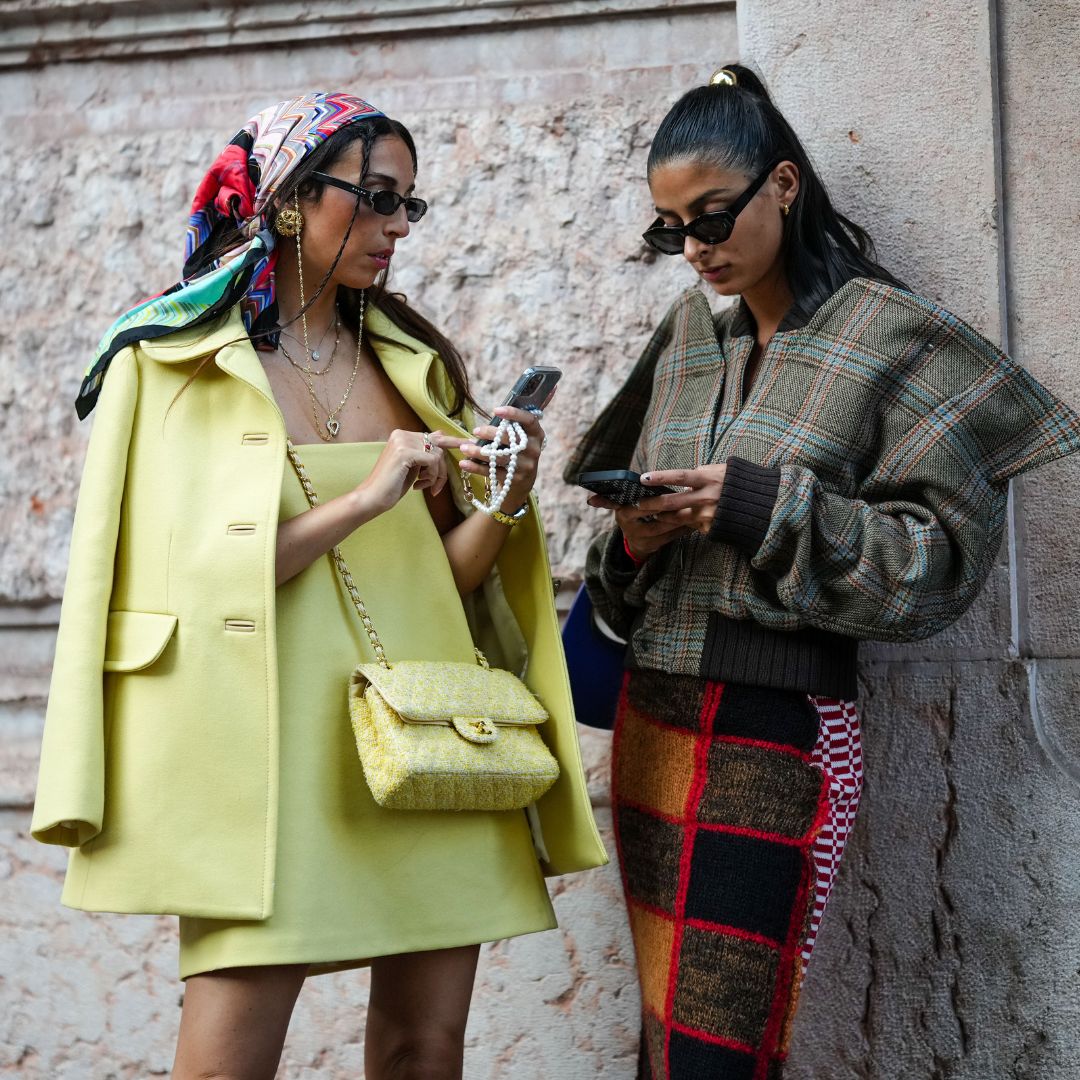 Mytheresa is having a secret sale right now and these are the 11 cult items I'm eyeing
Mytheresa is having a secret sale right now and these are the 11 cult items I'm eyeingIncluding the designer bag that was everywhere at Milan Fashion Week
By Clementina Jackson
-
 Prince Harry reportedly extended an 'olive branch' to Kate and William on latest UK trip
Prince Harry reportedly extended an 'olive branch' to Kate and William on latest UK tripBig if true
By Iris Goldsztajn
-
 How Prime Video is protecting Blake Lively amid her new movie promo
How Prime Video is protecting Blake Lively amid her new movie promoAn understandable move
By Iris Goldsztajn
-
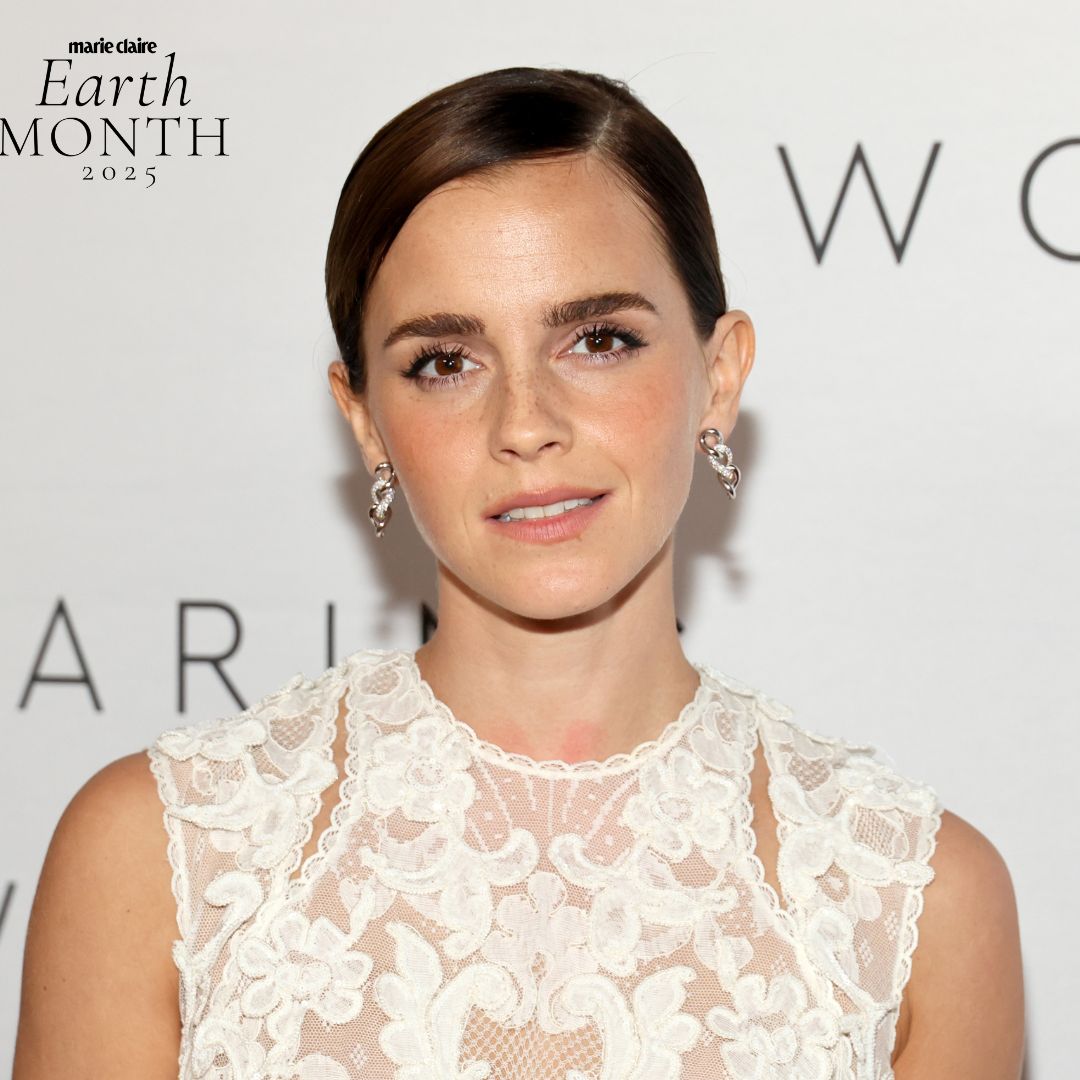 It's Emma Watson's favourite sustainable fashion platform - why you need to have Good On You on your radar
It's Emma Watson's favourite sustainable fashion platform - why you need to have Good On You on your radarThis one's worth bookmarking.
By Ally Head
-
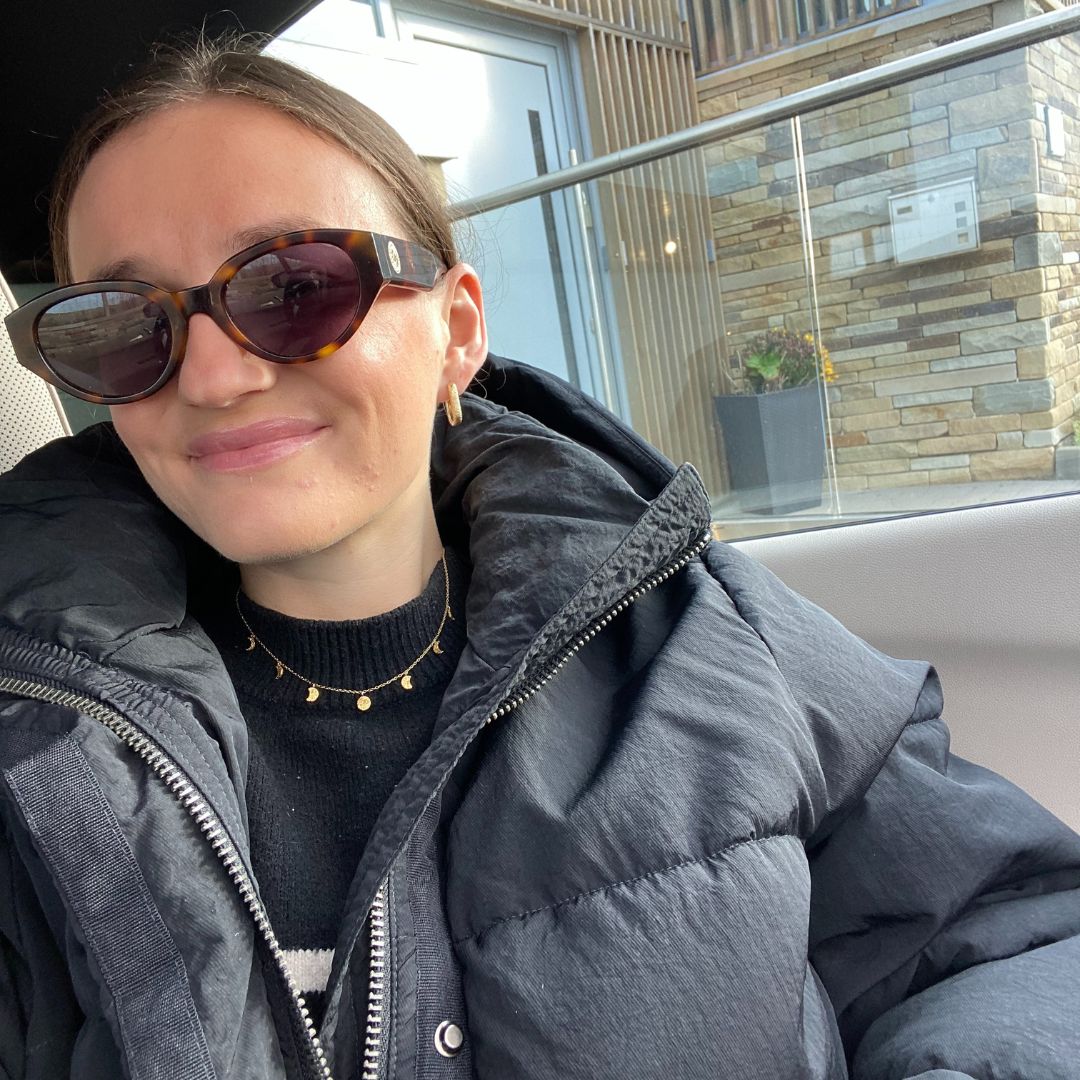 I went on my first road trip in an electric vehicle - and was amazed at how easy the whole experience was
I went on my first road trip in an electric vehicle - and was amazed at how easy the whole experience wasRead on for my honest review.
By Ally Head
-
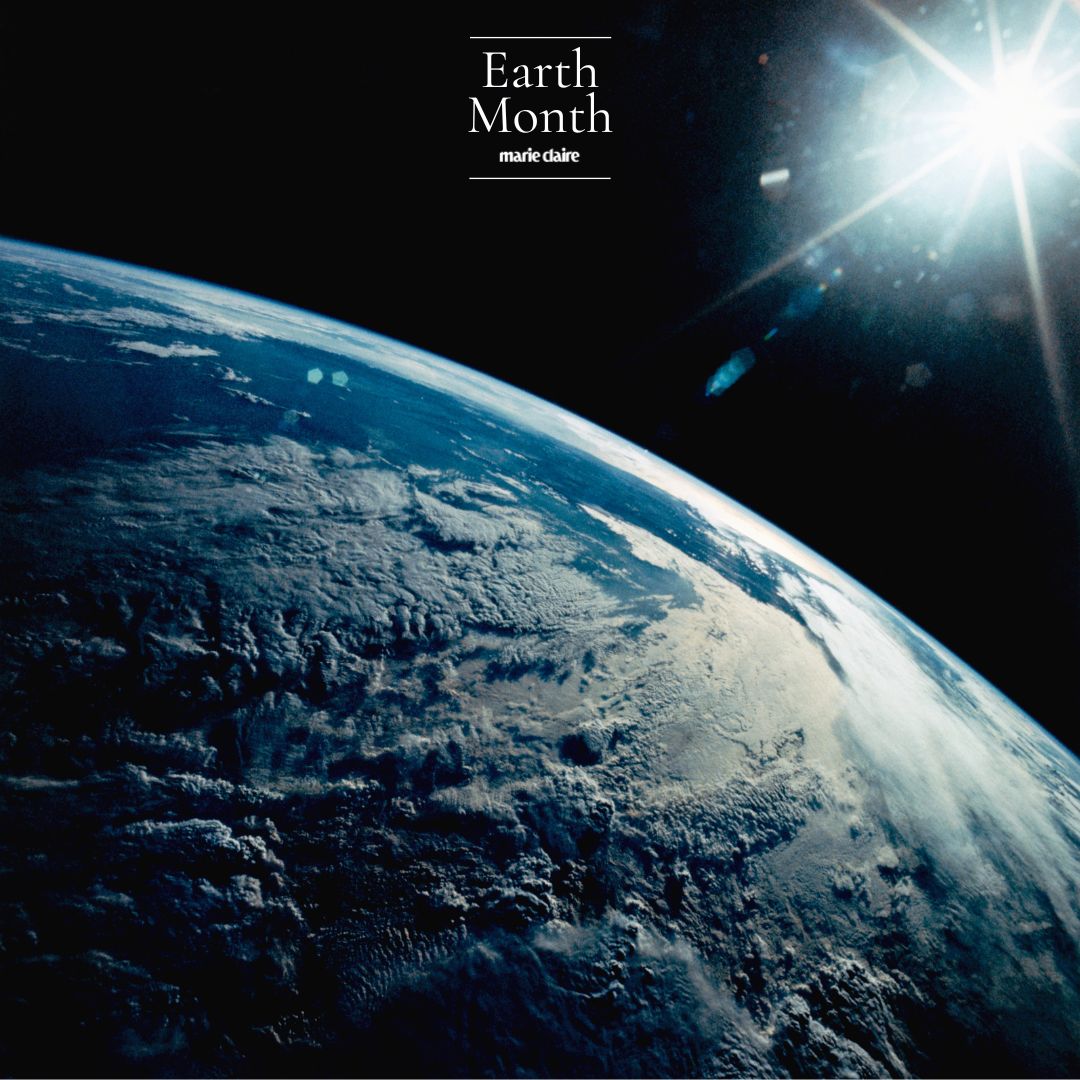 Keen to celebrate Earth Day? 5 simple ways you can inspire change and build a better tomorrow
Keen to celebrate Earth Day? 5 simple ways you can inspire change and build a better tomorrowLiving sustainably doesn't need to feel unattainable or overwhelming.
By Ally Head
-
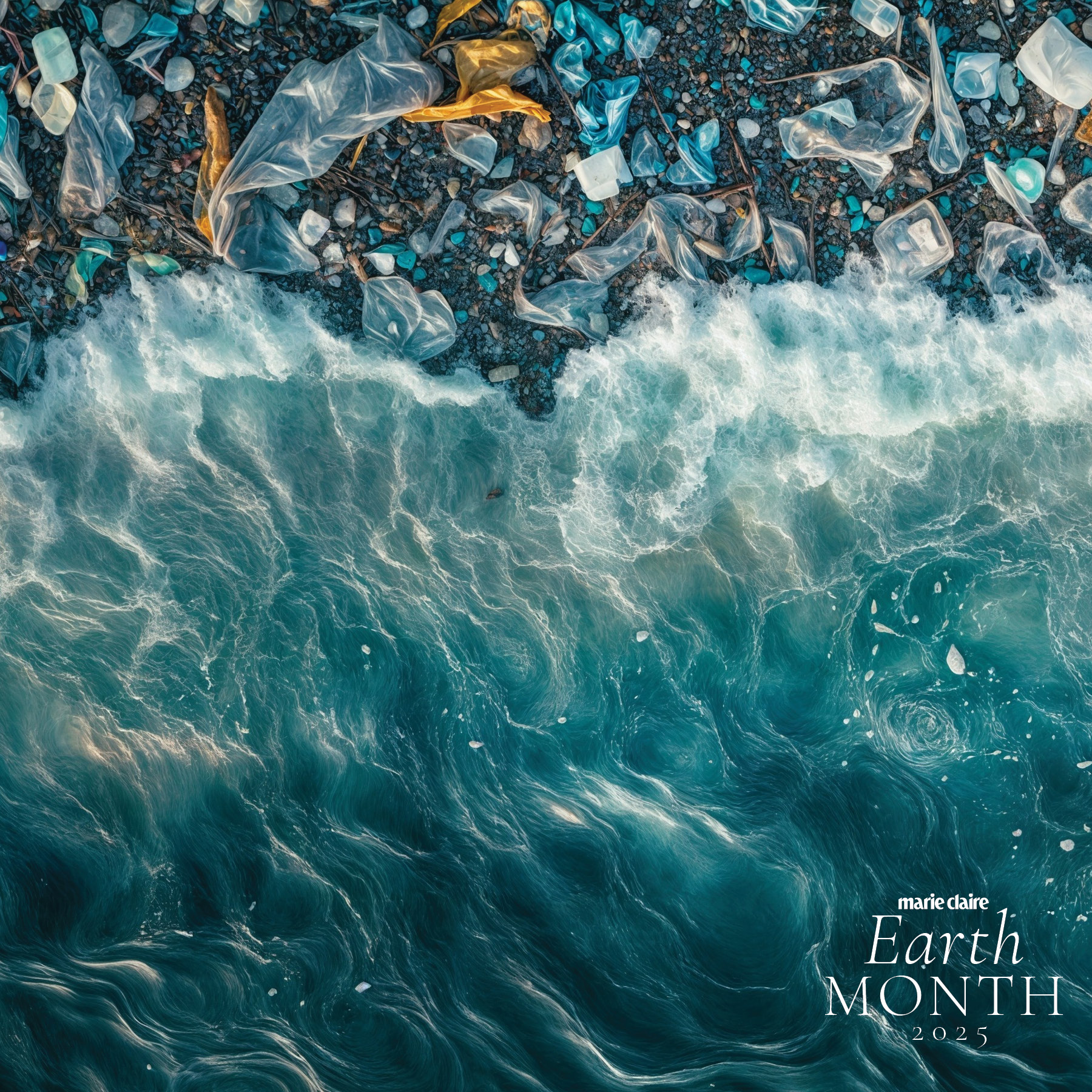 Heard about microplastics but not sure what they actually are? Your guide to the dangers they pose, plus how to avoid them
Heard about microplastics but not sure what they actually are? Your guide to the dangers they pose, plus how to avoid themThe tiny plastics are more harmful than you'd imagine.
By Dionne Brighton
-
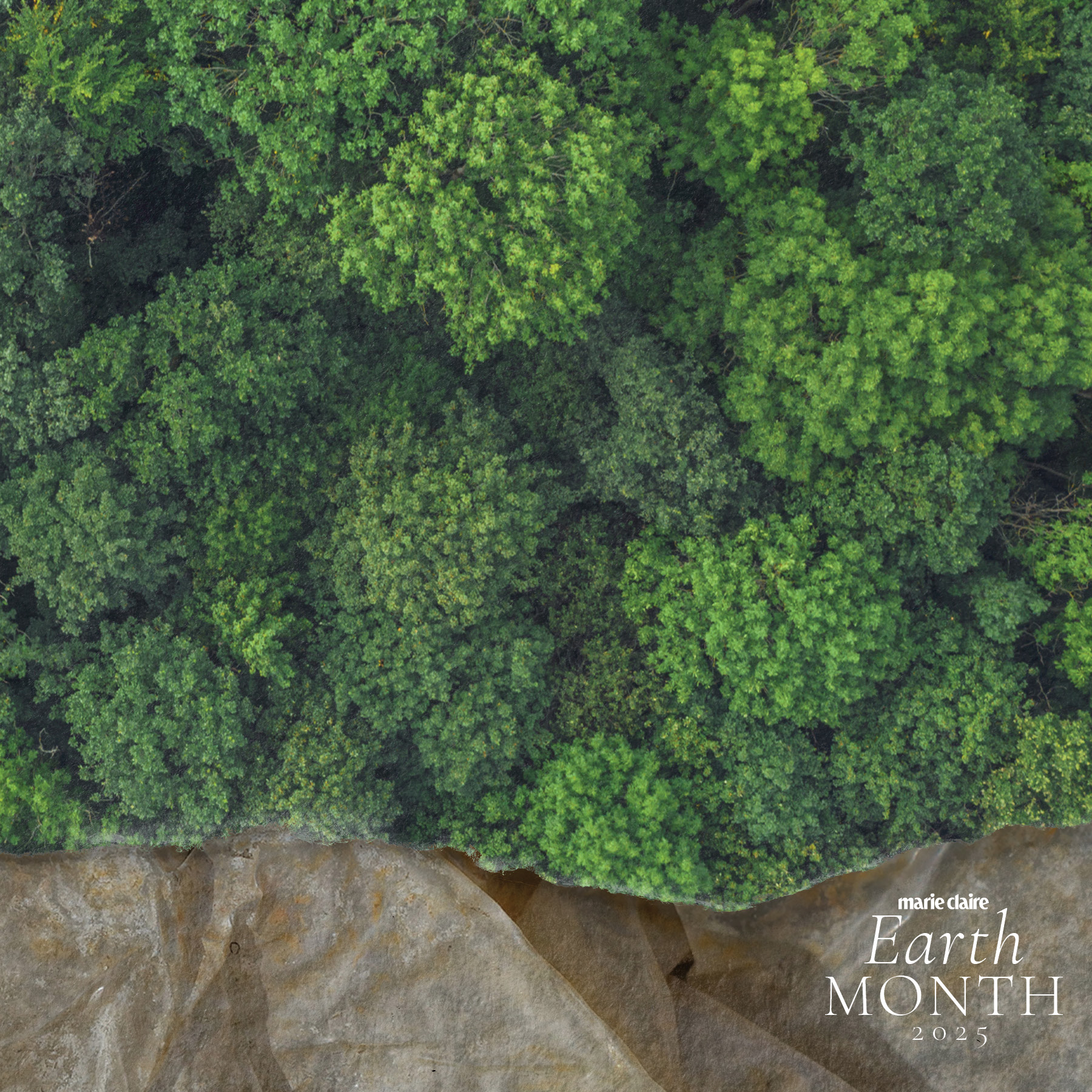 You’ve heard of greenwashing, but do you know how to spot - and stop - it happening?
You’ve heard of greenwashing, but do you know how to spot - and stop - it happening?This Earth Month, educate yourself on the most obvious red flags.
By Ally Head
-
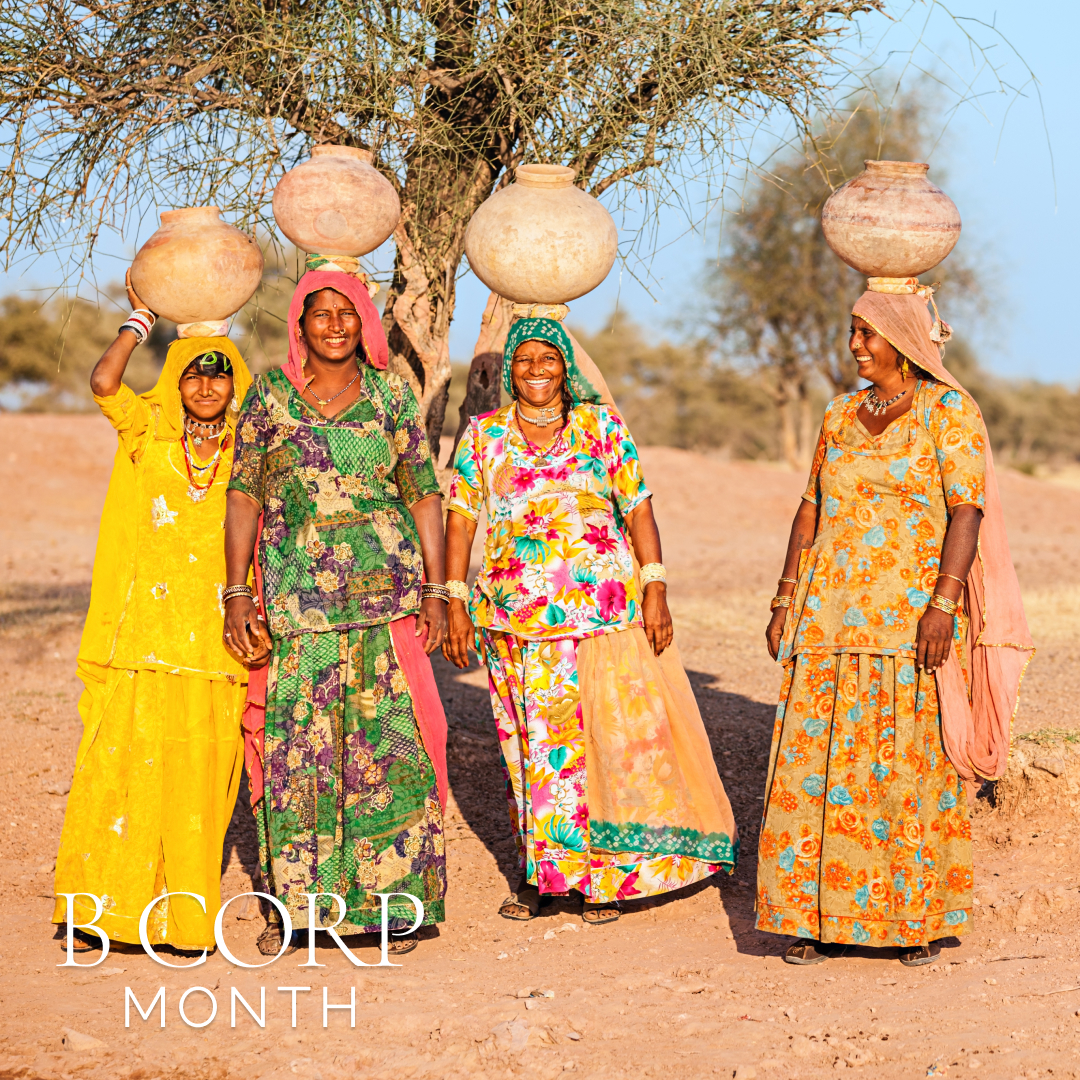 I'm a Beauty Director who's passionate about using sustainable products - here's how I make sure I'm using trustworthy brands
I'm a Beauty Director who's passionate about using sustainable products - here's how I make sure I'm using trustworthy brandsAs a conscious consumer navigating the sea of green claims, I find ethical brands with B Corp certification offer clear guidance.
By Lisa Oxenham
-
 Our fourth annual Marie Claire UK Sustainability Awards are here - and we can't wait to welcome your entries
Our fourth annual Marie Claire UK Sustainability Awards are here - and we can't wait to welcome your entriesIt's time to celebrate businesses that are a force for good.
By Ally Head
-
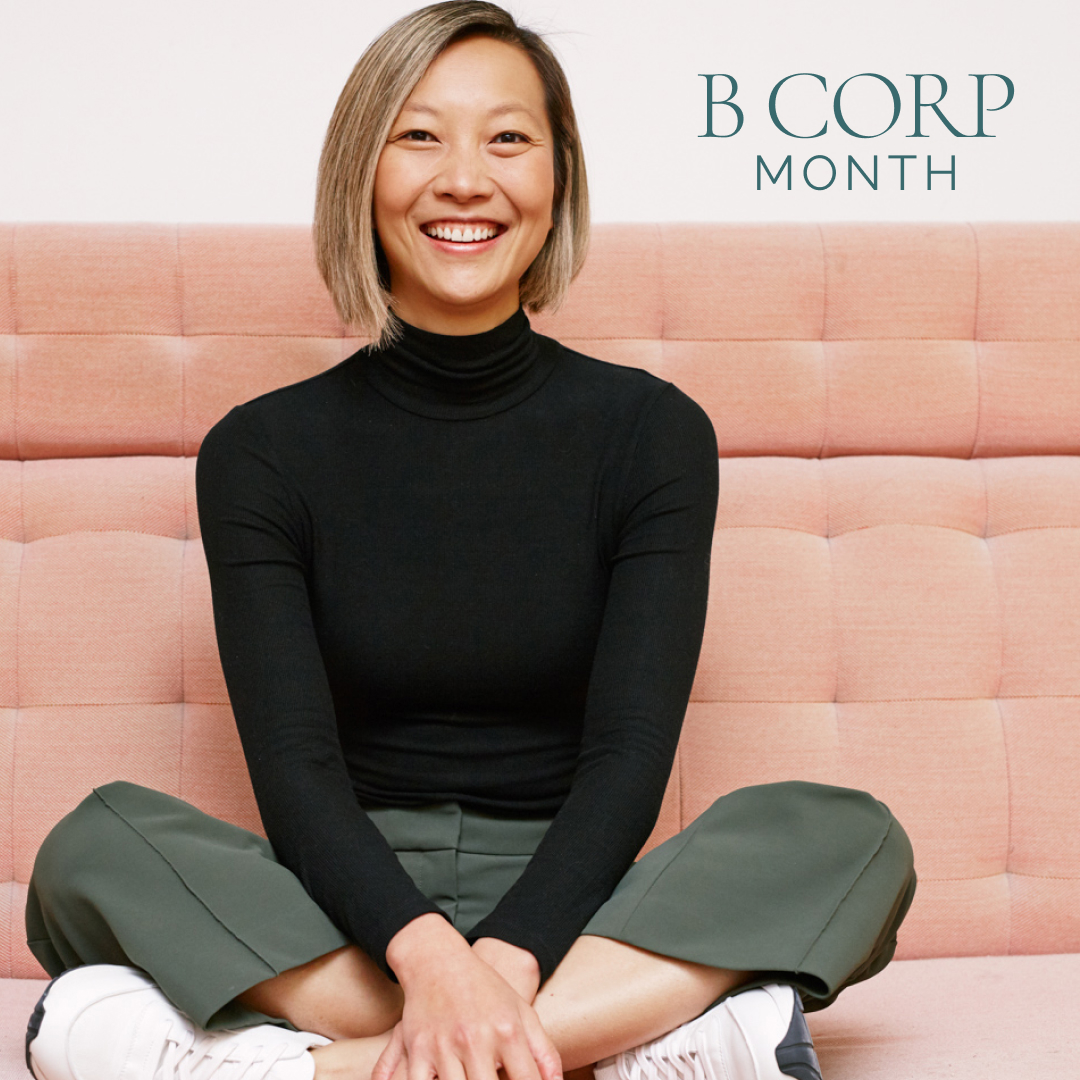 Joanna Dai: "I always believed in the power of brands to influence change"
Joanna Dai: "I always believed in the power of brands to influence change"This B Corp month, we chat to a dynamic changemaker about building businesses that are a genuine force for good.
By Ally Head
